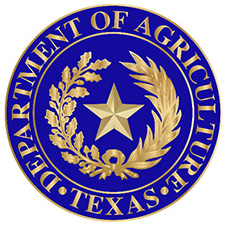Increase U.S. food production in response to war in Ukraine, says key senator
The Biden administration should encourage larger domestic food production to blunt the disruptions in global supplies created by Russia’s invasion of Ukraine, said the Republican leader of the Senate Agriculture Committee on Tuesday. Arkansas Sen. John Boozman said the land-idling Conservation Reserve, if needed, could provide millions of acres of cropland and pasture “to address both inflation and food security concerns.”
Passage of new bill would ease hunger among military families
A bipartisan bill, introduced on Tuesday by Sens. Tammy Duckworth, Lisa Murkowski and 12 other senators, aims to make it easier for servicemembers to receive SNAP benefits. As many as one in five members of the U.S. military experience food insecurity, but many are unable to get SNAP benefits because they receive housing allowances that are counted as income, which puts them over the limit for eligibility.
FDA clears CRISPR cattle for meat production
Following a safety review, U.S. food regulators said short-haired cattle produced through gene editing can be raised for meat production. Meat from the cattle could be available for purchase in as little as two years, said the Food and Drug Administration.
Today’s Quick Hits
Northeast dairy offers: Farmer cooperative Organic Valley offered to buy milk from 80 of the 130 small organic farms in the U.S. Northeast that are losing contracts with Danone and Maple Hill Creamery. (Organic Valley)
Rural broadband goals: USDA will aim to provide access to high-speed internet in “places that no one has dared to go before” when it awards $1.15 billion in grants and loans via round three of its ReConnect Program, said Xochitl Torres Small, undersecretary for rural development. (House Agriculture)
Rice belt shift: With access to irrigation water becoming less predictable, rice farming in California may move southward into the Sacramento-San Joaquin River Delta, where growers have rights to water from the estuary. (Modern Farmer)
Mitigation, no ban: The EPA is poised to allow farm use of four neonicotinoid pesticides for 15 years, despite its adverse impact on pollinator populations, although mitigation rules are under consideration. (Guardian)
Farm loan updates: USDA updated its farm loan regulations to reflect changes made by the 2018 farm bill to increase loan and loan guarantee limits, allow larger loan guarantees for beginning and socially disadvantaged farmers, and provide additional benefits to farmers; most of the changes were self-enacting and already in force. (Federal Register)











